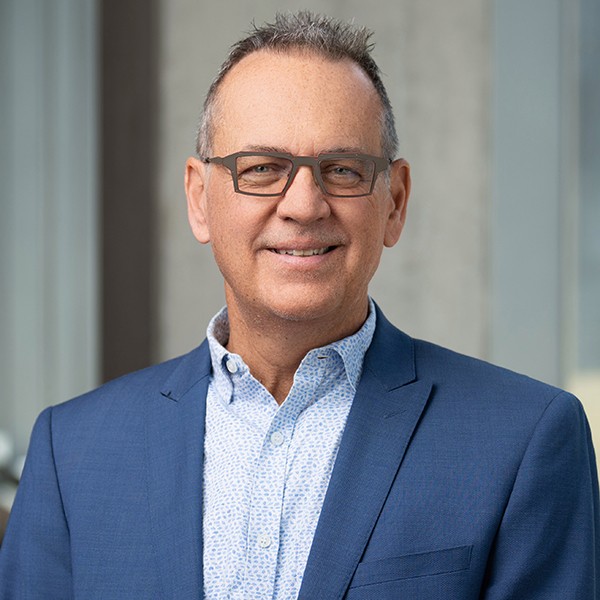Jeffrey Hubbell is Eugene Bell Professor in Tissue Engineering at the Pritzker School of Molecular Engineering of the University of Chicago.
Before moving to Chicago, he was on the faculty of the Swiss Federal Institute of Technology Lausanne (EPFL, where he served as founding Director of the Institute of Bioengineering and Dean of the School of Life Sciences), the Swiss Federal Institute of Technology Zurich and University of Zurich, the California Institute of Technology, and the University of Texas in Austin.
He was elected to the US National Academy of Engineering in 2010, the National Academy of Inventors in 2014, the National Academy of Medicine in 2019, the American Academy of Arts and Sciences in 2021, and the National Academy of Sciences in its class of 2024.
With more than 400 papers and 100 issued patents, Hubbell uses biomaterials and protein engineering approaches to investigate topics in regenerative medicine and immunotherapeutics. In regenerative medicine, he focuses on biomaterial matrices that mimic the extracellular matrix and on growth factor-extracellular matrix interactions, working in a variety of animal models of regenerative medicine. In immunotherapeutics, he focuses on nanomaterials in vaccines that target lymphoid-resident antigen-presenting cells, on protein engineering to modulate the tumor microenvironment and materials engineering to induce anti-tumor immunity, and on protein and materials engineering approaches to deliver antigen to the liver for inverse vaccines to induce tolerance to protein drugs, modulate allergy, and ameliorate autoimmunity.
His interests are both basic and translational, having founded or co-founded six biomedical companies based on his technology.
Hubbell designs materials to assemble in such a way that they can stimulate the immune systems to fight infection or malignancy, or turn off some aspects of the immune system to address auto-immune diseases such as type-1 diabetes. Hubbell has coined the term “immuno-modulatory materials” to describe this newly emerging field of research. Along with his associates, he holds 77 patents.
An entrepreneurial materials scientist, Hubbell has founded three companies based on his research.
One company, Kuros Biosurgery, in Zurich, is developing growth factor engineering and biomaterials technology for surgical sealants and tissue repair agents. That work is based on research from his academic laboratory on growth factor variants that bind to biomaterials such as fibrin, a protein involved in blood clotting, as well as on synthetic hydrogel technology.
Anokion, in Lausanne, is developing immunological tolerance technology for preventing immunity to protein drugs that would otherwise elicit an immune response, also based on research from Hubbell’s academic laboratory. A good example is in hemophilia A. Approximately one-third of children who are treated with the protein drug to correct this genetic disease develop an inhibiting immunological recognition to the protein, which makes their lives very difficult. Anokion is working on ways to induce tolerance to such proteins to prevent their immunological recognition.
The third, Focal, Inc., of Lexington, Massachusetts, was acquired by Genzyme Biosurgery in 2001.
Nanocrystalline Oligo(ethylene sulfide)-b-poly(ethylene glycol) Micelles: Structure and Stability
Sevgen, Emre, et al. "Nanocrystalline Oligo (ethylene sulfide)-b-poly (ethylene glycol) Micelles: Structure and Stability." Macromolecules 51.23 (2018): 9538-9546.
Adaptive enhanced sampling by force-biasing using neural networks
Guo, Ashley Z., et al. "Adaptive enhanced sampling by force-biasing using neural networks." The Journal of chemical physics 148.13 (2018): 134108.
Overcoming immunological barriers in regenerative medicine
J.L. Zakrzewski, M.R.M. van den Brink, J.A. Hubbell. Overcoming immunological barriers in regenerative medicine. Nature Biotechnology. 2014. Vol. 32, Pg. 786–794.
